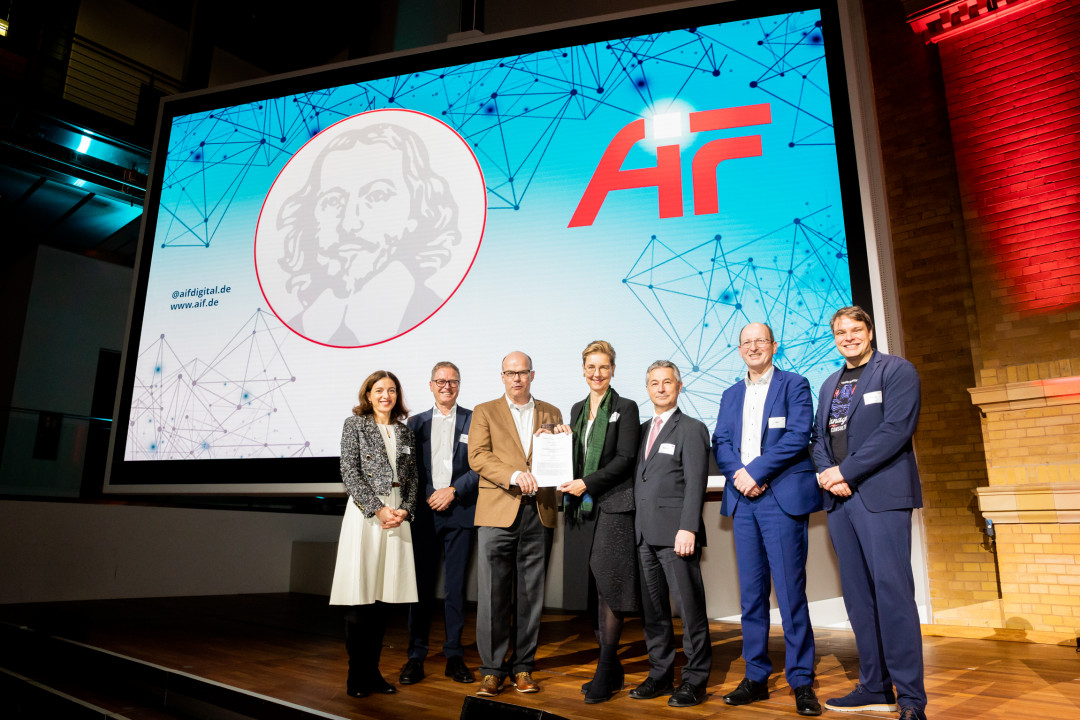
The German Federation of Industrial Research Associations (AiF), the German Institute for Standardisation (DIN) and the German Commission for Electrical, Electronic & Information Technologies (DKE) are now joining forces and expertise to promote the current and future innovation activities of German SMEs.
Standardisation and technology transfer - these partly "age-old" innovations from Germany are of fundamental importance today for the urgently needed success of the transformation process of our economy and thus for real climate protection.
The AiF German Federation of Industrial Research Associations, the German Institute for Standardisation (DIN) and the German Commission for Electrical, Electronic & Information Technologies (DKE) are now pooling their strengths and expertise to promote the current and future innovation commitment of German SMEs. "Medium-sized companies make up 99.5 per cent of the German economy," explains Professor Michael Bruno Klein, Managing Director of the AiF, explaining their transformational importance. Klein, Jan-Frederik Kremer, Managing Director of AiF Forschung Technik und Kommunikation (FTK) GmbH, Christoph Winterhalter, Chairman of the DIN Executive Board, Sibylle Gabler, Member of the DIN Executive Board, Michael Teigeler, Managing Director of DKE, and Florian Spiteller, Member of the DKE Executive Board, signed a declaration of intent at the end of November 2023, thereby announcing their closer cooperation in favour of the research-based SME sector. The common goal is to sustainably increase the innovative strength of Germany as an industrial centre.
"Standards support global trade and serve the safety, interoperability and functionality of products and systems," emphasises Teigeler. In the DKE, which is supported by the German Association for Electrical, Electronic & Information Technologies (VDE), around 10,000 technical experts develop norms and standards that ensure the safety of electrotechnical, electronic and information technology products and systems, among other things. As a national standardisation organisation and nationwide competence centre for electrotechnical standardisation, the DKE represents the interests of German industry in European and global standardisation organisations.
Founded in 1917, the independent DIN today makes an important contribution to shaping the digital and green transformation. Around 36,500 experts from industry and research, consumers and the public sector contribute their specialist knowledge to the standardisation process, which DIN manages as a privately organised project manager. "Norms and standards promote technology transfer and are therefore an important catalyst for innovation worldwide. In this way, they support the national and international competitiveness of German industry," explains Sibylle Gabler and AiF Managing Director Klein adds: "At the same time, it is our joint endeavour to facilitate application-oriented research in German SMEs."
The AiF is the industry-supported network for the promotion of research, transfer and innovation in the SME sector. Its aim is to initiate research for SMEs and to qualify young scientists and specialists in innovative fields. As an umbrella organisation of around 100 non-profit research associations with 50,000 participating companies and 1,200 participating research institutions, the AiF has a unique infrastructure for linking business and science efficiently and across sectors. "As the voice of research-based SMEs in Germany, we are constantly expanding what we call our network of networks in order to optimise the AiF innovation ecosystem," emphasises Kremer.
The three organisations plan to cooperate in particular in the future areas of circular economy, hydrogen technologies, artificial intelligence/IoT, resource efficiency, transformation of the energy system, foresight (strategic foresight) and other innovation topics. The intention is to make the research results usable for industry and society via standardisation alongside the processes established in the research associations to date.
Specifically, according to the joint declaration, the added value of standardisation as a transfer instrument for research results is to be made more visible and a training programme for transfer managers and multipliers from the small and medium-sized enterprise (SME) sector is to be developed. Low-threshold information and networking formats via the AiF InnovatorsNet, such as the "DIN Spotlight" series, are already being implemented. AiF InnovatorsNet is a community of innovators for innovators that connects companies, start-ups, research facilities, institutions and individuals in both digital and analogue form. It helps its members to tap into networks, further develop their business model and drive growth and innovation. Together with DIN and DKE, the topics of "standardisation" are firmly anchored in a co-community in AiF-InnovatorsNet. All three partners are also in favour of strengthening the Industrial Collective Research (IGF) funding programme of the Federal Ministry of Economics and Technology and integrating standardisation into IGF projects and the Central Innovation Programme for SMEs. In addition, they are striving to increase the influence of SME interests as part of the national "Hydrogen Standardisation Roadmap". "We want to involve SMEs in the standardisation potential of future topics at an early stage," summarises Klein.

